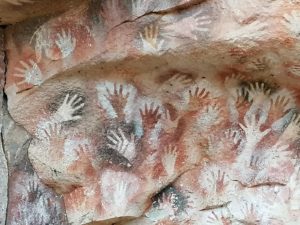The breakthrough was a bottle of water.
For three days, wildlife ranger Everlyne Merishi had been embedded with a group of Maasai morans, or hunters. It was mid-2023, and they were searching for lions that had killed several of their cattle near this national park at the foot of Mount Kilimanjaro. For the Maasai, cows are sacred and considered members of their families. The men wanted vengeance.
Mrs. Merishi understood that feeling, because she is Maasai herself. That is also why she was convinced there could be a less destructive solution.
The group had already walked about 25 miles that day when members stopped, exhausted, for a break. Mrs. Merishi and her team began to pass around bottles of water. As the hunters drank, their faces softened and they mustered weak smiles.
Mrs. Merishi remembers walking over to a group where one of the leaders sat.
“I told them that I understood their pain and that an injustice had occurred, but I promised that we would ensure that the authorities would relocate these two lions,” she says.
Mrs. Merishi is part of an all-woman ranger unit working on Maasai lands near Amboseli National Park in southern Kenya. That’s rare: Globally, women account for only 3% to 11% of all park rangers. Team Lioness, as the Kenyan unit is known, was formed in 2019, part of a worldwide movement to increase those numbers.
These efforts are important, experts say, because they challenge stereotypes – but also because they help conservation efforts reach a wider audience. In the Amboseli area, for instance, the Lionesses have been particularly effective among the ranger teams at connecting with locals like the Maasai.
“It’s astonishing to see the incredibly positive ripple effect of employing women from local communities and the benefits on their lives and their communities at large,” says Holly Budge, the founder of World Female Ranger Week and a longtime advocate for women in wildlife protection.
Challenging tradition
The sun is barely peeking over the savanna each morning when Mrs. Merishi and her fellow rangers lace up their sneakers and head out for a 2-mile jog near their base. As they run, they chant a running series of jokes.
“Cold water,” one ranger shouts, a reference to the only thing coming out of the taps at their base camp.
“I ain’t bathing, I ain’t bathing,” the others repeat.
Lack of hot water aside, the commander of Team Lioness, Sgt. Purity Lakara, has dreamed of this life since she was a child.
She grew up in a Maasai village approximately 30 miles from here. Her community placed heavy value on living in harmony with both animals and nature. And when she saw wildlife rangers patrolling the area, she was awed by the sense of authority they projected. There was one problem though: “They were all men,” she says.
Meanwhile, girls like her were expected to get married young and settle into a domestic life.
“The [Maasai] community is largely patriarchal and set in its ways,” says Rosemary Ntoipo, CEO of Girls’ Empowerment Program and Network, a nongovernmental organization in Tanzania that promotes the rights of Maasai women and girls. It is “quite the exception” for women to work outside the home, she says.
But Mrs. Lakara’s parents were determined that she should get an education, and her timing was fortuitous.
Proving their mettle
In 2013, Africa’s first all-woman ranger unit, the Black Mambas, was formed in South Africa, and others soon followed in countries such as Zimbabwe and Congo. Supporters of the trend argued that women were more approachable and were able to communicate more easily with other women in the communities where they worked.
The idea to form an all-woman ranger team in Amboseli came up in 2019. It was the brainchild of a female Maasai elder named Kirayian Katamboi and the International Fund for Animal Welfare, a global charity.
At the time, Mrs. Lakara had just finished high school. When village elders called a meeting to pitch the new ranger unit, “my heart leapt for joy,” she says. She became one of its founding members.
Today, Team Lioness is made up of 17 women, each of whom has completed a three-month training in ecology, first aid, and “bushcraft” – or the art of talking to people about conservation. They live for stretches of 21 days at a simple base camp with concrete floors and a sheet iron roof in the Olgulului-Ololorashi Group Ranch, as the Maasai land surrounding Amboseli National Park is known.
Each morning, the rangers patrol the surrounding area on foot, walking about 12 miles as they look for signs of poaching and survey the wildlife in the area.
The women are also responsible for managing occasional conflicts between locals and the animals, which usually flare up when lions or cheetahs from Amboseli cross into Maasai villages and kill cattle.
In the past, these situations often led to tensions between park rangers, who didn’t take kindly to attempts to kill the offending wildlife, and communities, who often felt authorities wanted to protect animals but didn’t care about the people they harmed.
However, the honest communication style of Team Lioness and other ranger units from Maasai communities has helped gain trust. They explain the law and people’s rights – like their right to be compensated for cattle killed by big cats from the park.
“The community has grown to trust them,” says Jackson Sitonik, warden of the Olgulului Community Wildlife Rangers, of which Team Lioness forms a part. “The rangers from Team Lioness have proven their mettle time and again.”
The rangers also give back to the community in other ways. In April 2022, they started a school outreach program where they hope to inspire students – particularly girls – to stay in school and pursue careers in conservation.
“I beam with joy when I hear the students say, ‘I want to be like Ranger Lakara or Ranger Merishi,’” Mrs. Lakara says. “It means that they see us as role models.”




